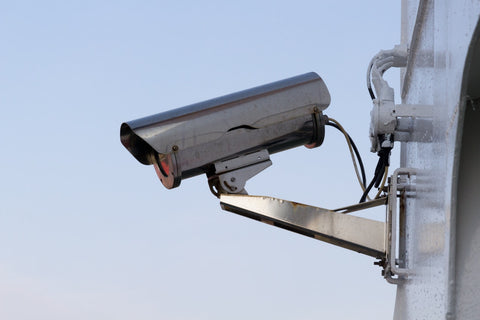
13 Mar 2019
- 0 Comment(s)
Thinking of setting up your own home security system? We bet that you’re having a hard time choosing between using a cellular and IP monitoring system. We can’t blame you. It’s like choosing between day and night. Here’s a rundown on each monitoring option to help you finally decide which you should get for your house.
But before we put each other side-by-side, we need to know what is cellular and IP alarm monitoring first to better understand how both can improve our home alarm monitoring system.
What is cellular monitoring?
 Photo courtesy of Rawpixel via Pexels.com
Photo courtesy of Rawpixel via Pexels.com
This type of security system uses a panel with an exclusive cellular network to send out signals or communicate with the monitoring service provider in the event that any of its alarms are triggered.
Thanks to the rapid rise of mobile phone users, the landline is steadily on its way out of the regular household. And this correlates to the sudden increase of cellular monitoring service users.
Pros of having a cellular monitoring alarm system
Continuous service
One of the things a burglar may do to increase their chances of a successful break in is to cut the power. If they are able to do that, most anti-burglar systems are rendered useless.
Unfortunately for them, a cellular alarm system is that it can work even when the power is out. Well, at least until the batteries run out. This type of security system has batteries to power it long enough to last a short outage and alert authorities or your monitoring service provider.
Reduce chances of disarming the alarm
Although these are offered in various sizes, a lot of these cellular monitoring systems are small enough to easily conceal in your house. For reference, the device itself is usually the size of a tablet (in some cases, even smaller). And because it uses cellular communicators, it doesn’t need to be connected to a telephone via cables just to inform authorized personnel of an intrusion or emergency, making it less susceptible to tampering.
Easy to set up
Like most wireless security systems available in the market today, a cellular alarm system is easy to DIY. All you need is a mobile phone and connect it to the base control panel, then connect the sensors and you have a cellular security system that’s monitoring your home. This can be done through the system’s mobile app via Bluetooth or wireless network.
Cons of having a cellular monitoring alarm system
It can cost more
It’s no secret that wireless systems can cost more compared to wired ones because of the technology behind it. That case is true when it comes to alarm monitoring systems like this.
Speed can be an issue (interference)
Although it has improved significantly over the past couple of years, a cell signal may still slow down during severe weather. Radio frequencies can also interfere with cellular signal and hamper data transfer. As a result, there may be times that you get a delayed notification that a burglar has broken into your house or that there’s an emergency. Thick walls can also be an issue.
What is IP monitoring?
IP monitoring, aka internet alarm monitoring, on the other hand, sends out signals through the internet via Wi-Fi when the alarm is triggered. It can also be easily set up through the Wi-Fi router or Bluetooth connection through its mobile app.
The advantages of using IP monitoring
It can update you faster
Thanks to the advances of the internet, speeds are now even faster than it was just a couple of years ago. Now you’re able to stream whole movies without interruption.
A study by Speedtest.net reveals that last year there was a 35.8% increase in download speed, while a 22.0% spike was seen in upload speed in the U.S. This equates to a 96.25 Mbps and 32.88 Mbps download and upload speed, respectively.
With the internet speed today, IP internet communicators can send you updates faster than ever. This is very crucial as it can lead to a faster apprehension of burglars or immediate action in certain emergencies in your home.
You can watch live stream
It’s hard to leave your home alone for a day or two (or more). Anything can happen in the period you’re gone. Don’t you wish you could see what’s happening any time on demand? Well, Wi-Fi alarm monitoring systems come with mobile apps and websites that provide live support. What’s more is that these services now provide a live stream for its subscribers.
Cloud storage is an option
One advantage that IP monitoring has over the rest of the security system is the option to have cloud storage. This means your security system is no longer limited to whatever storage device it has. You can now review as much footage you want without losing storage.
The disadvantages of using IP monitoring
Can easily be disconnected
Despite the massive leap in technology, an internet connection can still easily be disconnected physically and digitally. Internet cables leading to the Wi-Fi router are usually not hidden or treated as a vulnerability of the system. This makes it easier for burglars to cut off the wire and the disable alarm.
A fast, stable connection is a must
As previously mentioned, the internet can be disconnected for many reasons such as a power outage, problem from the service provider, etc. If you’re at home, at least you get to monitor the alarm communicators using the Wi-Fi. If you’re out, on the other hand, you’re cut off from any access to your security system until the internet connection returns.
The verdict
 Photo courtesy of Pixabay via Pexels.com
Photo courtesy of Pixabay via Pexels.com
It’s obvious that IP and GSM alarm communicators systems each have its own advantages and disadvantages. So which is better?
There’s an old saying that goes, “never put your eggs in one basket” and that applies to your home security system. It’s always better to have a backup in case the other fails. Sure, it would cost a lot more, but you can’t put a price on the safety of your home and the people living in it.

